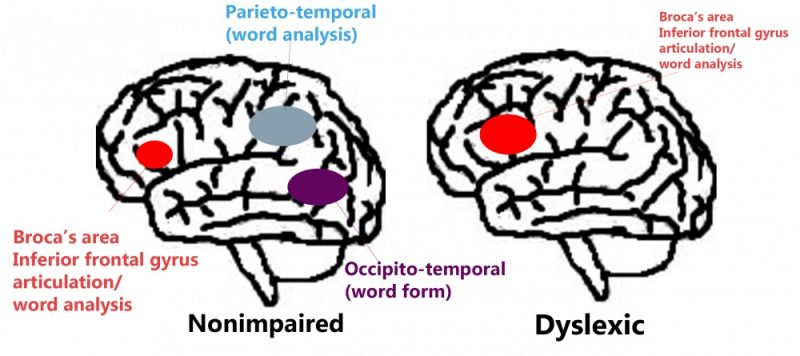Adults living with Dyslexia: The silent struggle

It’s estimated 1 in 10 people in the UK have some degree of dyslexia. Throughout school, they are the kids that have extra time in exams or are in a different class, but what about as adults?
People with dyslexia have to overcome many obstacles but possess the talent and knowledge to be an asset for any organisation, but places of employment don’t always have the tools already available or understand what someone with dyslexia is going through; however, there are many ways they can help.
But first, what is dyslexia?
- Dyslexia is an invisible disability, which affects around 10% of the population in the UK, with some research suggesting that it affects 15.5% of the population.
- It’s commonly known to create difficulty in reading and writing, but there are other issues that arise from dyslexia.
- Dyslexia is a lifelong disability which starts from childhood but is not always spotted until adulthood, as there are different levels of dyslexia.
Living with dyslexia
Joe Cooke is a 27-year-old man from Birmingham, living with dyslexia. At the age of eight, he was diagnosed with learning difficulties but was told he had Scotopic Sensitivity Syndrome, which affects how the brain processes information, but it wasn’t until he was 22 that he found out he was dyslexic.
 Supplied
Supplied Education and interaction with people
Throughout his time in education, he was constantly told by teachers that he wouldn’t amount to anything if he didn’t get the grades. Despite everything he faced throughout his education, both the obstacles he faced through learning and the emotional stress he was under, he was still able to get into university, both wanting to prove people wrong and to make his aunt proud who passed away a few years ago who had always believed in him.
“Because of my grades I just thought I’m not built for that world, but towards the end of my college year, I realised that I had the sort of grades that could get me into university.
“My aunty who passed away when I was 16, who’s a really important woman within my life, who’d been a massive inspiration to me, she was a teacher who worked with special additional needs, and she got me diagnosed with Scotopic Sensitivity Syndrome. She always thought I could’ve gone and would always tell me to look at into it, so it was kind of like something I wanted to do for her as well, without that bigging up I wouldn’t have gone.”
Despite the support of his family members, he realised that there are stigmas attached to the invisible disability, which was made clear when he went to a house party, where there were grammar school students where one of the partygoers said that dyslexic is another word for retarded.
“I think if you’re going to judge anyone because of their learning disability, or physical disability, you’re just an idiot. To think that we’re all going to be on the same playing field is ridiculous.
“With dyslexia, I think people just think you’re not intelligent, that you’re uncapable, which is the worst thing. I think the stigma on the flip side, is that people think that you struggle to read a bit or get your d’s and b’s backward, but it’s how you process information, which is how you communicate, which is how you see the world, it generally affects your life and a lot of the things you do.”
Getting tested
Realising that he shared many of the same traits as his friends who have dyslexia, Joe got tested in his final year of university, after it weighing in the back of his mind for a while.
There were several tasks, from puzzles to questions on general knowledge, he had to do, and at the end, the invigilator told him he was definitely dyslexic.
“It feels like you’re more awake, it feels like you’ve been in a bit of a daydream and now life’s hit you, and that’s the closest way I can explain it.
“I was a bit scared, the idea of not being able to understand your own brain is quite scary and knowing that you haven’t for a very long time and that there’s been something there, which is a part of you, which you’ve never known about and then all of a sudden, this is you and it always has been you, and I think there’s something nerve-racking about that.
“I was definitely annoyed, now that I work in education I can tell when I’m working with kids, and there’s something going on I’ll always ask their teacher or support worker, but no one ever seemed to ask about me and there were plenty of warning signs along the way, rather than just being try harder, or you’re not clever, or what’s your problem Joe, instead just saying we think you might have this or have you ever thought about this.
“But I felt like it was also a new chapter, thinking this is a part of who I am, it’s like a genetic trait like having blue eyes.
One barrier Joe feels need attention is the cost to get tested, with children it is reduced, and schools and universities can assist while with adult’s assessment with a specialist teacher is £450.00 + VAT, while Assessment with an Educational Psychologist: £600.00 + VAT. On getting tested, Joe feels there needs to be support available for adults under certain circumstances, but on getting tested, he gave the advice:
“It’s up to the person if you think ‘I’m doing alright how I am,’ then just keep rocking but if you think, ‘oh I think there’s something going on here, and I want to find out’ then go for it.”
 Supplied
Supplied Employment
After graduating from university, he went on to become a poet and a musician but is also fully self-employed. He mainly works on music type projects and has a few consistent gigs working with children and teaching them music. One with a local community centre called Falcon Lodge, in Sutton Coldfield where he teaches drums and rapping and does the same at two pupil referral units in Coventry every week, through Coventry Music Service, where kids have been removed from mainstream education.
Being self-employed, his dyslexia has affected his work life.
“It doesn’t really affect how I teach, but writing emails, reading emails, reading massive contracts, time management, because with dyslexia we can have short attention spans, but it doesn’t get in the way, I just go with the flow with as sprinkle of chaos when I do stuff, it keeps me on my toes.”
Along with being employed, he is actively working on helping children with dyslexia. On May 3rd he read a poem about being a dyslexic at a conference held in Telford to do with the SEND cuts. The conference was held by the national union of headteachers where teachers from across the UK came to talk about what changes to make, and parents were present fighting for their children’s education, some very upset of the little that’s being done.
Joe is still working with the Union and intends to keep doing more and feels he can bring something to the table with his craft.
“Any conference can get boring, I can bring a new energy into the room, I’m a living embodiment of why this is important, so it’s good to hear from actual people it’s affected.”
His experience with dyslexia has made him more open about the way he teaches his students, crafting each lesson to help teach the individual in the best way and he feels that it’s because of his dyslexia he is a better teacher. He intends to carry on working with his students but also will be bringing out his own music, which he is currently working on, and wants to do more to help create a better space for children who have learning difficulties.
 Supplied
Supplied Advice
Living with dyslexia himself, he has the following advice for people who feel they’re having difficulties with their dyslexia.
“You’ve just got to not let it be a barrier; you can’t let it be an excuse, making you lazy, making you not want to attempt something because you think ‘it will take me forever,’ you have to ignore everything and do your own thing. If it takes you two hours to do that essay, if it takes you longer to write that play, or that blog, or that letter, then that’s fine.
“There’s this quote, there are different roads up a mountain but the views still the same, so even if it takes you longer to get to the end goal then don’t worry about it.”
What makes a dyslexic person dyslexic?
The brain wiring of someone with dyslexia is different from someone who is not. An fMRI scan shows that the brain differs, the rapid reading is impaired in dyslexics; however, other areas of the brain provides compensation for accuracy, but not for speed.
The brain has two parts, the front and the back, the back in where neural activity takes place, which is the main reading part of the brain, only a fraction of this part is used by someone who has dyslexia, however the front part contains roughly 2-3 times more neural activity than someone without dyslexia.
 Fahima Khatun | I Am Birmingham
Fahima Khatun | I Am Birmingham
The stigma
People at times overlook the invisible disability as they don’t understand how to deal with it.
Russell Van Brocklen, founder of DyslexiaRemedy.com, said:
“The stigma generally comes down to the fact that most people really do not understand dyslexia and more importantly how to deal with a person with dyslexia. When you see someone in a wheelchair, it is quite easy to understand what needs to be done. A business needs to be wheelchair accessible, and you can ask the person in the wheelchair what assistance they wish. Some will take assistance, and some want to do most, if not everything, on their own. All of which can be understood by normal people.
“Dyslexia, on the other hand, just confuses people and they do not know what to do to help. It’s not that normal people are bad, but when a normal person does not understand dyslexia, this lack of understanding makes them very uncomfortable. They do not know what to do; that’s the primary reason for the stigma.”
What are the main difficulties for people with dyslexia?
 Kyan
KyanA common stigma attached to people with dyslexia is that they are illiterate or uncapable, but what’s not realised is that it’s a lifelong struggle that people have dealt with and have created their own creative strategies to cope with the issue. But in a fast-paced work environment, it could become stressful for employees who are dyslexic to stay on track despite being capable of completing the task.
Reading and writing forms of communication: People who have dyslexia can often find it challenging to read as it can confuse the order of letters and words, some have found that when they read the same paragraph twice, it’s different. Writing up letters and emails can also be hurdles as they need extra time for proofreading, there are proofreading software’s available that could help relieve the stress to people with dyslexia.
Problems with numerical related tasks: dyslexics can also have difficulty with numeracy as well as literacy. Having access to a calculator can help.
Memory: some struggle with taking in complex or large amounts of information and remembering it or processing the information which could lead them to take longer to complete the task. It also creates time management problems. One way to overcome this is by having reminders set up via mobile phone or computer.
Concentrating: Some dyslexic employees may get distracted in certain environments, some ways to help employees could be putting them in an area where there’s minimal distraction or providing them with noise cancelling headphones.
Verbal communication and visual stress: much like memory problems, people with dyslexia may find it hard to pick up what is said to them the first time or may find it difficult to word themselves, people can help by repeating themselves slower or allowing them to take notes. While with visual stress, some dyslexics have found that the text appears distorted or moves, this can be resolved by leaving voice memos.
 Janine
JanineDespite the barriers faced by those who are dyslexic, they have skills in other areas, such as problem-solving, as they have a constant struggle they can find it easier to find solutions and come up with creative ideas. The idea that dyslexic people can’t work isn’t true as 4 out of 10 employees are dyslexic.
There are organisations in the UK that help employers get the best out of their employees who are dyslexic and help employees find the best solutions and connect them with employers, such as Exceptional Individuals, although they are based in London they offer their services nationwide.
The founder of the organisation, Matt Boyd, said:
“We use a test called the spikey profiles, people without dyslexia score flatly, so you get tested on numbers, spelling, reading, writing communication, how you process information. People with dyslexia are quite spikey, we advise employers to find a job for the person where the top spikes are, and for the bottom spikes, there’s so much support available.
“If they tap into the right parts of someone with a dyslexic brain, they’re going to reap the rewards.”
How can companies make their workplace dyslexia friendly?
 Laszlo Gyarmati
Laszlo GyarmatiAdults with dyslexia have battled with the disability their whole lives and have created their own coping mechanisms, but in a place of work where there is more stress, there are ways in which employers can help.
ACAS, the UK’s employment watchdog, revealed from a nationwide research that many employers have neurodivergent employees some without realising and are failing to help those employees.
The report highlighted that many employees don’t reveal their disability to managers and colleagues in fear of being judged or discriminated, which is why 73% of the people they spoke to revealed that they “did not disclose their condition during interview – of those that did, 58% regretted it, feeling this led to discrimination.” The worry of being discriminated is not just fiction as research by CIPD revealed last year that 72% of employers didn’t include people with neurodivergent in management roles.
Under the Equality Act, employers must accommodate for people who are dyslexic, and if there is discrimination, they may want to take their case to an Employment Tribunal. To prevent this, employers can take simple steps to help make their workplace dyslexic friendly.
Neurodivergent is a person whose brain functions in a different way; there are several types of people who fall under the names, and dyslexics are one of them.
The organisation published an employer’s guidance to help businesses support neurodivergent employees.
- Create awareness within your workplace by having workshop classes or awareness days.
- Ensure to employ managers who demonstrate strong skills such as communication and are both aware and capable of creating reasonable adjustments for neurodivergent employees.
- Many neurodivergent people can be unaware, if a manager spots someone who has shown indication of being neurodivergent. Employers could offer a formal diagnostic, this both helps the employer, making it easier to find what support to provide, and ensure they meet their legal obligations, and for the employee making it easier for them to be able to work with less stress and lowers levels of absence and poorer performance.
- Latest research from ACAS created from a survey from across the UK with over 600 participants found that “43% of survey respondents felt discouraged from applying by job application processes” and “52% claimed to have experienced discrimination during interview or selection processes.” To prevent this organisations can make the recruitment process more inclusive by offering alternative application methods, such as instead of written statements have them send audio or visual application where possible, and training interviewers to not be bias during the process.
The full guideline is available on the GOV website and on ACAS.
For more information about dyslexia, visit the British Dyslexia Association.

























